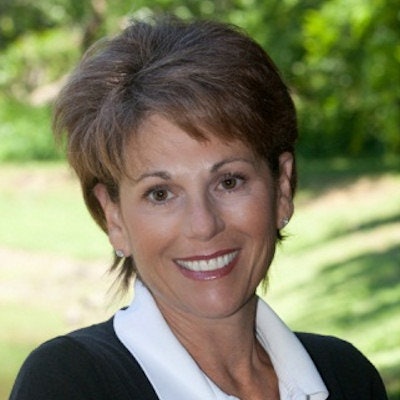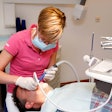
More than 50 years ago, the U.S. took a step toward fulfilling the "all men are created equal" promise laid out in the Declaration of Independence by enacting a law that made discrimination illegal based on race, color, religion, sex, national origin, disability, or age. This hard-won right was a challenge to all Americans to eliminate the last vestiges of injustice in our country.
But the battle for equality still rages south of the Mason-Dixon Line, except this skirmish is over increasing the right to preventive oral health services delivered by dental hygienists on behalf of Georgia's underserved citizens.
 Suzanne Newkirk, RDH, is a dental hygiene coach and mentor.
Suzanne Newkirk, RDH, is a dental hygiene coach and mentor.On August 22, 2016, Nicoleta Serban, PhD, a Coca-Cola Associate Professor at the Georgia Institute of Technology School of Industrial and Systems Engineering, presented her data on access to care at a meeting of the Georgia House and Senate Health and Human Services Committees. Among the 2.6 million children living in Georgia, 1.1 million have little or no access to preventive dental care, she noted. Her report indicated that Medicaid children living in rural Georgia had to travel up to 45 miles to reach a dentist for basic dental services, but they only needed to travel only 2 miles to see a primary care physician.
Serban's data indicated that it would take approximately half of the dentists in Georgia to accept Medicaid insurance to close the disparity gap between children with public insurance and those with other financial means. Sadly, many children in Georgia who lack access to dental care end up seeking treatment in hospital emergency room departments.
Recently published information in the Journal of the American Dental Association (September 2016, Vol. 147:9, pp. 702-708) identified 2010 statistics for Georgia Medicaid children requiring hospitalization to treat severe dental cavities as a result of lack of access to preventive dental care. Of the 2,882 children receiving treatment in hospital operating rooms, most were between the ages of 1 and 5. The cost to Georgia was $8.3 million.
“It would take approximately half of the dentists in Georgia to accept Medicaid insurance to close the disparity gap between children with public insurance and those with other financial means.”
Dr. Serban's research identified a potential savings to Georgia of almost $7 million annually if just 20% of Georgia's Medicaid children received basic dental services of fluoride varnish and sealants. Numerous studies have demonstrated that the easiest, most cost-effective solution to this problem is to increase access to preventive dental services delivered by licensed dental hygiene professionals -- a solution that has been working across America for years, except in Georgia.
A 2016 bill before the Georgia Legislature failed because the Georgia Dental Association (GDA) asked legislators to kill it. The bill, HB 684, would have allowed dental hygienists to provide preventive dental services in safety-net clinics, nursing homes, federally qualified health centers, and school-based health clinics without a dentist needing to be physically present in the treatment facility -- but only if the work had been authorized by a dentist.
Georgia is one of the last states in the U.S. to require a dentist to be physically present in the treatment facility while dental hygienists deliver authorized services. This level of supervision is called direct supervision and is required in fewer than five states across the country, including Georgia.
Worse, the measure would have saved Georgia millions of dollars while increasing access to dental services for children not receiving care now. The state dental association opposed the bill stating it was a matter of public safety, yet they cited no evidence to support their assertions.
An August 22 article in the Atlanta Journal-Constitution review of campaign records found GDA's lobbying association and dental practices gave more than $800,000 to state candidates and political action committees over the past five years. In addition, the dental association typically spends $7,000 to $8,000 each summer hosting key lawmakers at its annual beachside convention.
It is a sad day in Georgia when state dental association re-election campaign funds mean more to our legislators than the well-being of their constituents. Let us hope they have a change of heart when the hygienist bill is reintroduced in 2017.
Suzanne Newkirk, RDH, is a dental hygiene coach and mentor and a recognized key opinion leader in dental endoscopy. Her website is www.perioscopyprofessionals.com, and she can be reached at [email protected].
The comments and observations expressed herein do not necessarily reflect the opinions of DrBicuspid.com, nor should they be construed as an endorsement or admonishment of any particular idea, vendor, or organization.



















